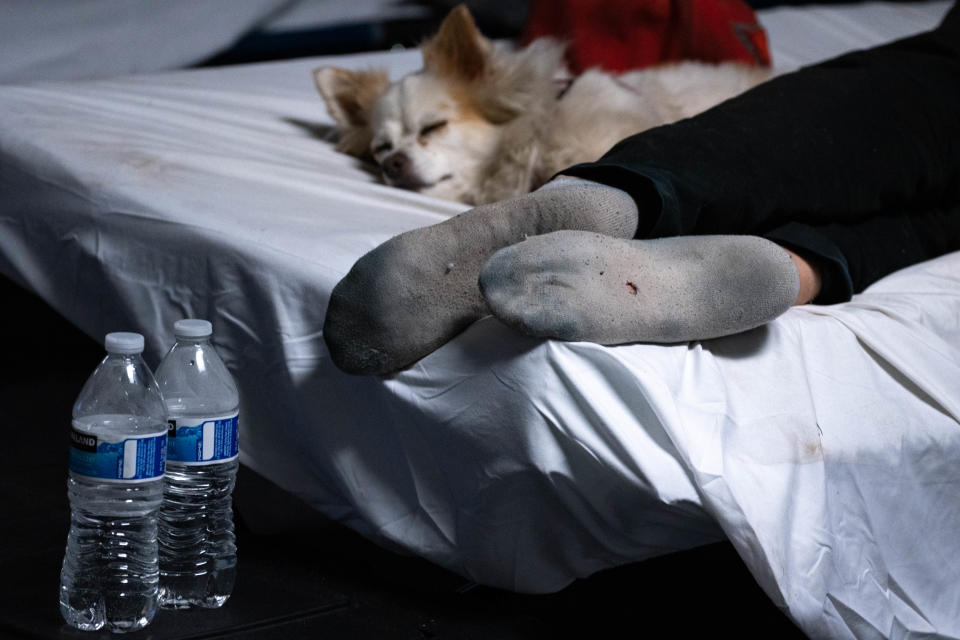Phoenix homeless shelter is getting people off the streets, for good. Here's how
Too many times we hear people say, “Oh, they want to be on the street” or “It’s drugs” or “It’s mental health” that’s keeping people homeless.
And too often, that’s where conversations end — in a place of easy dismissal, misperception and sadly, a place of hopelessness.
Not all people experiencing homelessness are drug addicts or mentally ill.
The homelessness surge in Phoenix is a result of being priced out of housing. And even if people do struggle with drugs and mental health, that’s no reason to dismiss hope of them getting off the street.
We have to believe at our core that no one wants to be homeless; otherwise, we have given up.
Our shelter served 1,000 in its first year
In having hope, we create space for opportunities to truly help people end their homelessness — opportunities like St. Vincent de Paul’s 200-bed shelter and rehousing program on Washington and 28th streets, which gives reason to hope for a future where no one has to sleep outside.
This May, we celebrate our shelter’s one-year anniversary and the tremendous pipeline it’s been to housing.
Already the program has served 1,000 people and celebrated more than 600 move outs — to rehab centers, assisted living and other non-emergency housing.
That includes 125 people who moved into permanent housing.
Who are these success stories?
They are often people who have lived on the street for years, those getting clean, taking medication, and persevering to hold down work.
They are the very people society too often dismisses as hopeless.
We know what works to help homelessness

People such as Denise Gutierrez, who has been sober for more than a year now and is in her own studio apartment that St. Vincent de Paul’s helped secure with deposit and rent assistance.
Only months earlier, she struggled with addiction while living on the streets downtown.
There is, in fact, hope.
Temporary, low-barrier housing with intensive, wraparound services, like we provide at our Washington Street shelter, is what’s moving the needle for those previously deemed “resistant” to housing. We’re seeing people come into shelter for the first time.
In Mesa: City to buy hotel for homelessness services
And our closed campus — meaning no walk-ups, only referrals — keeps our presence discreet.
Drive by the intersection. You won’t even know there’s a shelter there.
A good neighbor agreement signed between St. Vincent de Paul, government funders and local businesses ensures that we all respect and uphold a peaceful business and presence in the neighborhood for the betterment of all parties.
This model can be duplicated, giving others hope
Fewer people on the street in the direct neighborhood is good for business, and it’s good for those who now have a bed, connection to resources, and a real path to housing.
So the next time you hear that hopelessness talk, remember our shelter and rehousing model on Washington Street, where we offer people love, dignity and respect.
Remember Denise.
And practice hope by supporting opportunities to help solve homelessness — temporary shelter being just one of the many things needed.
Hopelessness doesn’t start with people on the street. It starts with those of us resistant to temporary shelter and housing options in more neighborhoods, including our own.
St. Vincent de Paul’s shelter success and neighborhood relations can be duplicated.
We have hope because we believe and witness that people can and do end their homelessness when we give them the best chance to do so.
Shannon Clancy is St. Vincent de Paul’s Rob & Melani Walton Endowed CEO. Reach her at sclancy@svdpaz.org.
This article originally appeared on Arizona Republic: Phoenix homeless shelter is getting people off the streets, for good

